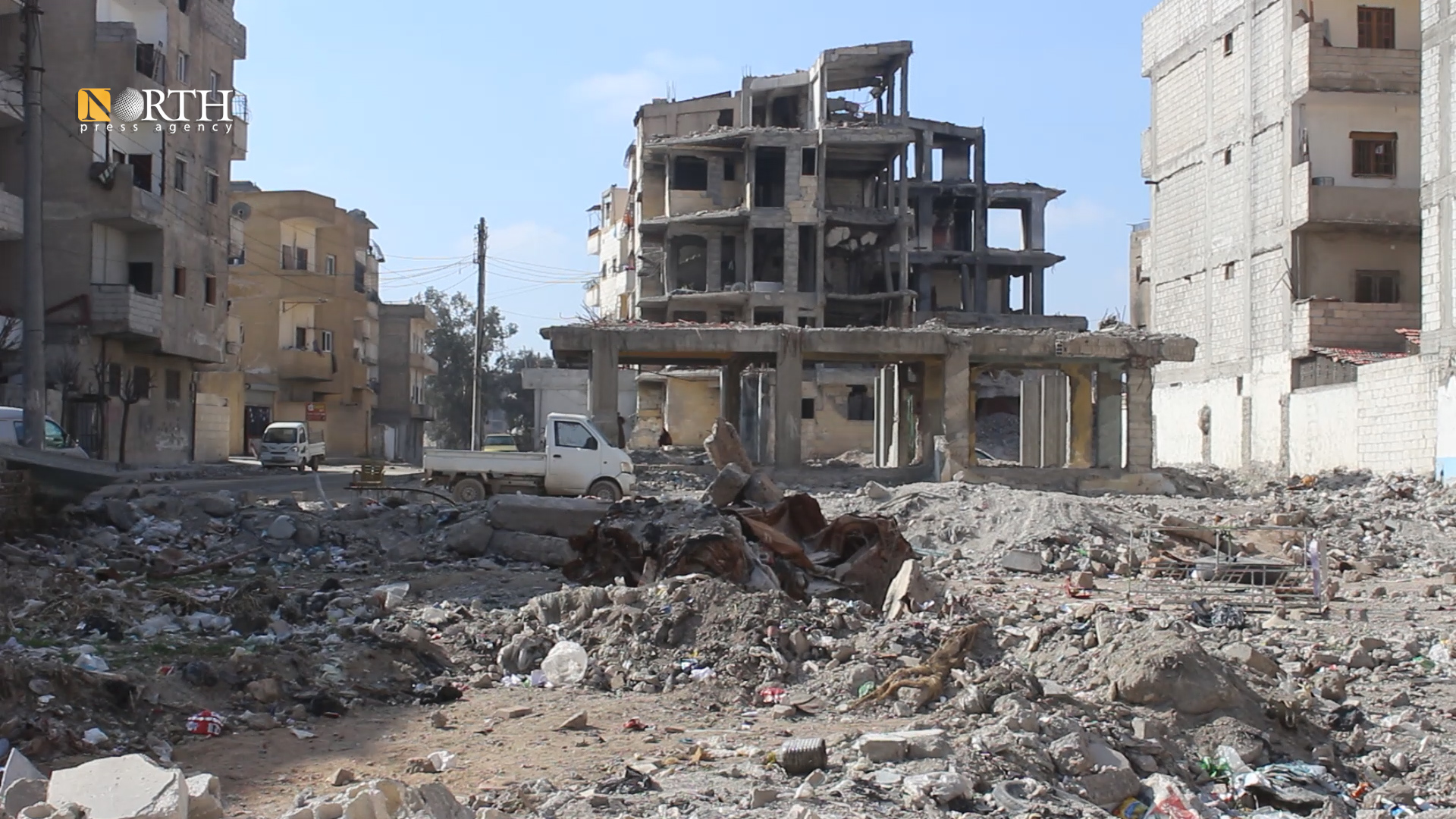RAQQA, Syria (North Press) – The residents of al-Bedo neighborhood in the city of Raqqa, northern Syria, said, their neighborhood is neglected regarding the service sector and that the municipality does not attach importance to the work of removing rubble from some neighborhoods.
The al-Bedo neighborhood is located in the northeastern part of the city, the name of the neighborhood dates back to 45 years, since the Bedouins lived in it.
The percentage of destruction in Raqqa is estimated to 90% as partial destruction, while more than 60% of the city has been completely damaged, according to the municipality.
Destruction and rubble
The 70-year-old Abd al-Hamoud, who has been residing in the neighborhood for 12 years, said that the municipality has not removed the rubble of the destroyed buildings yet.
“The residents filed complaints to the municipality asking the removal of the rubble but we have not received any reply yet,” al-Hamoud said.
Residents of the al-Bedo and other neighborhoods in the city complain about poor roads and infrastructure grids such as electricity and water.
Al-Hamoud pointed out that some streets in his neighborhood are almost empty of residents, which makes the few inhabited houses vulnerable to theft.
Serviced neighborhoods
Muhammad Yazji, owner of a real estate office in Raqqa, said that the city includes about 100 neighborhoods of varying degrees of destruction during the war, and some streets are still blocked because of the rubble.
He added that the situation of the services in some neighborhoods in the city center is good compared to those most affected by the war, such as al-Bedo, Intifada, and Bain al-Jisren neighborhoods.
Yazji pointed out that some low-income families live in uninhabitable buildings with falling apart roofs.
Those who rebuilt their homes relied on their own money due to the lack of projects to rebuild the city and organizations supporting the restoration or reconstruction of what the war had destroyed.
Late in 2020, the Local Administration and Municipalities Committee in Raqqa held its annual conference to review the work done during the year 2020.
“The implementation rate in the water field did not exceed 60 %, while that related to the residential buildings reached 20 % only,” Ahmad al-Khedr, the co-chair of the Local Administration and Municipalities Committee in Raqqa, said.
Al-Khedr pointed out that most of these implemented projects were self-financing and without any external support.
Redevelopment
However, Ahmad Ibrahim, the co-chair of the People’s Municipality in Raqqa, said, “The matters of service in the city are slowly heading towards stability.”
“The municipality regularly removes the rubble resulting from the restoration and rehabilitation of homes,” he added.
He pointed out that the support of some organizations is limited to partial compensation, such as helping in securing doors, windows, paints and partial restorations.
Ibrahim stated that the disparity in services between neighborhoods is due to paying more interest in improving services in the city center and public markets in order to stimulate the economic reality in the region.
The outbreak of COVID-19 and the insane rise in the dollar exchange rate have affected the service projects, while several projects were merged into one project.
Ibrahim described the issuance of more than 3,000 permits of restoration and reconstruction as an unprecedented redevelopment in Raqqa.
He concluded that the municipality has plans for a fair distribution of services in 2021, in order not to discriminate among the neighborhoods.
In October 2017, the al-Bedo neighborhood was the last part of the city from which the Islamic State (ISIS) militants were expelled by the Syrian Democratic Forces (SDF) with the support of the US-led Global Coalition.
At that time, ISIS militants detained the residents who remained in Raqqa and took them to the neighborhood to use them as human shields in their battles with the SDF.

